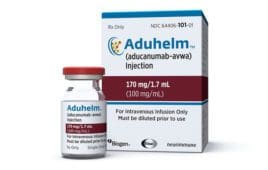
A major factor underlying Parkinson’s Disease (PD) pathology is the loss of dopamine neurons in the substantia nigra, and thus current therapies often aim to restore dopamine signaling. However, these treatments are not curative. The most promising approach for truly reversing disease progress involves the replacement of the specific dopamine neurons that have been lost, and this is the focus of a special issue on Parkinson’s Disease, published in Stem Cells and Development, a peer-reviewed journal published by Mary Ann Liebert, Inc., publishers. The special issue is available free on the Stem Cells and Development website until August 24, 2018.
In “Autologous Induced Pluripotent Stem Cell-Derived Neurons to Treat Parkinson’s Disease ,”Jeanne F. Loring, PhD, the Scripps Research Institute (La Jolla, CA), discusses impending clinical trials involving stem cell-derived therapies for treating PD. Loring contends that individualized dopamine neurons differentiated from patient-specific induced pluripotent stem cells (iPSCs) hold the greatest promise for effective treatment. The downside of the iPSC approach is the associated cost, but Loring points to the success of individualized immunotherapy for cancer treatment to bolster her case.
In “Novel Approach to Stem Cell Therapy in Parkinson’s Disease.” Russell Kern, International Stem Cell Corporation (CA), Andrew Evans, Royal Melbourne Hospital (VIC, Australia), and colleagues present a differing view on the ideal approach. Instead of patient-specific neurons, they use parthenogenetic (from chemically induced unfertilized oocytes)-derived neural stem cells. Advantages of this approach include the evasion of ethical issues surrounding embryos (also true with iPSCs), a reduced number of de novo mutations compared with iPSCs, and apparently low immunogenicity due to HLA-G expression, which is thought to play a role in immune tolerance during pregnancy.
“The understandable excitement generated by recent successful phase 1 clinical trials in the treatment of Parkinson’s disease (PD) is tempered with worldwide concern for the safe translation of stem cell research to an effective treatment for this terrible disease and other neurological conditions,” says Editor-in-Chief Graham C. Parker, PhD, The Carman and Ann Adams Department of Pediatrics, Wayne State University School of Medicine, Detroit, MI. “The research in this special issue reflects the responsible advancement of cell therapy for PD.”
Warning: Cannot modify header information – headers already sent by (output started at /app/docroot/includes/common.inc:2777) in /app/docroot/includes/bootstrap.inc on line 1486
Filed Under: Neurological Disease




